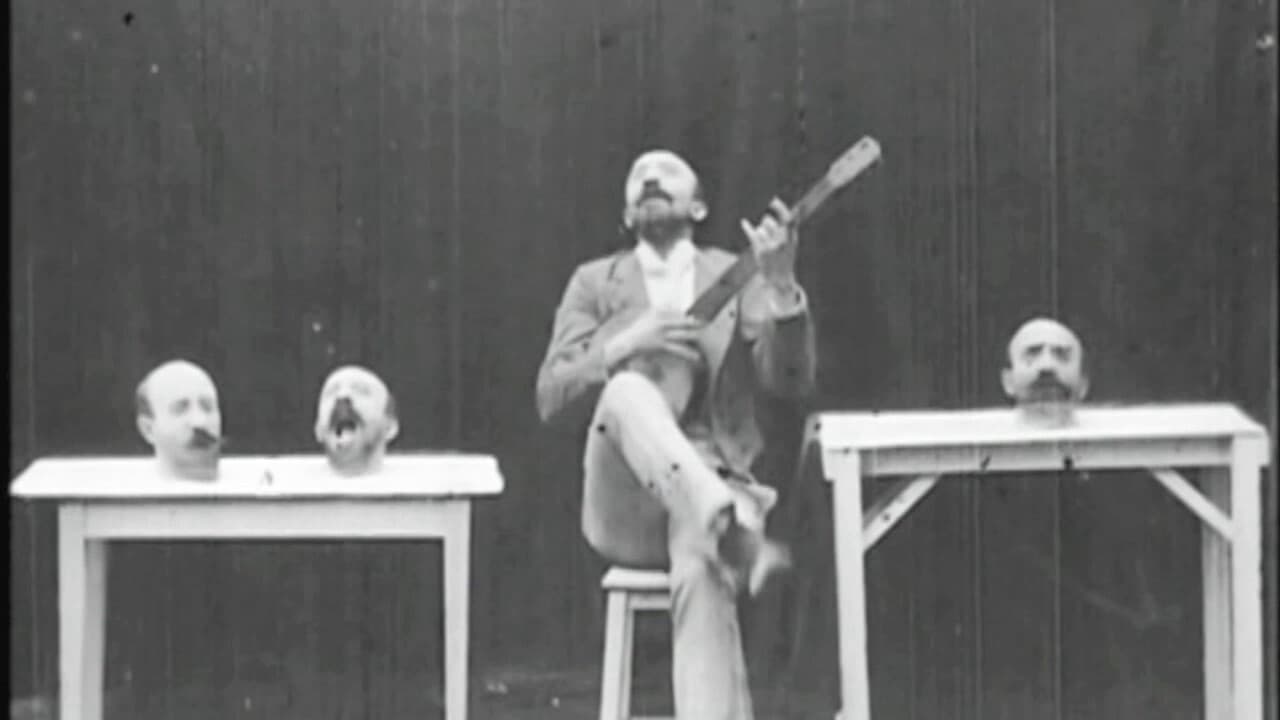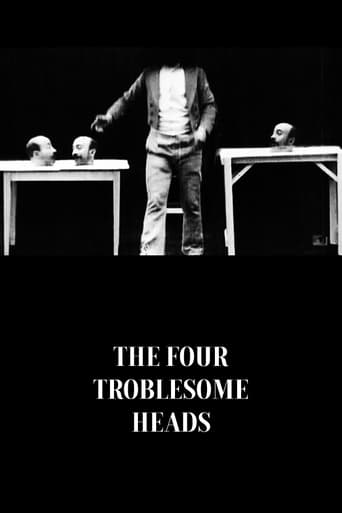

It's hard to believe that this brief effort from 1898 still exists and is viewable for just about anyone thanks to the delights of the Internet. It's another early effort from Georges Melies that utilises simple stop motion camera tricks to quite wonderful effect. Here, the emphasis is on ghoulish head-play, as a man pulls off his own head which then multiples until a number of heads are singing and laughing on the tables about him. Seen today, the special effects seem primitive and obvious, but imagining how this must have looked back in 1898. I can well imagine that people were fleeing in fear. Melies was a true genius.
... View MoreGeorges Melies was a stage magician before turning to film, so it's no surprise that he plays a stage magician. But in his films, Georges does what no stage magician could possibly do.In "Un homme de tete", Melies repeatedly takes his head off and grows a new one three times, then gets out a banjo and sings a quartet with bodyless selves. The fluidity and aplomb with which he performs is nothing short of remarkable.While many early films are primarily interesting for their historical value, Melies' transcend mere museum pieces. Like Buster Keaton's silent films, they are timeless and retain their charm -- in this case, well over 100 years later.
... View MoreEarly French filmmaker Georges Méliès is universally known as a pioneering cinematic visionary, courtesy of the phenomenal success of his most famous film, 'Le Voyage dans la lune / A Trip to the Moon (1902).' However, the director's undeniable genius is also apparent in many of his earlier, lesser-known shorts, most running less than one minute in length. Throughout the 1890's, most filmmakers had only exploited the cinematic medium for experimental or documentary purposes, capturing images of everyday objects or situations. Méliès, a magician by trade, saw things much differently. He imagined cinema being used to translate the impossible onto screen, to surprise and baffle the audience, to transport them into a world unlike their own. His 'Un homme de têtes / The Four Troublesome Heads' of 1898 is an absolute gem, and an incredible exhibition of how far Méliès was ahead of his time in terms of visual effects.The film begins when a magician (as always, played by Méliès himself) appears on stage and, remarkably, removes his own head. When he places the singing head onto the table, a new one suddenly appears on the his shoulders, and the magician and the head interact with each other, with the former scrambling beneath the table to prove to the audience that he is not playing a cheap magical trick on them. The magician repeats this stunning feat twice more, until there are three enthusiastically singing Méliès heads sitting on the table, and the intact magician entertains them with his banjo.Probably the first use of split-screen in cinema history, the visual effects in 'Un homme de têtes' are nothing short of remarkable. The countless uses of split screen, dissolves and double exposures blend seamlessly into the finished product, convincingly passing itself off as having been filmed in a single take. The director's extraordinary on screen charisma is once again on show for all to see, and you can certainly tell that he was formerly a magician; his vibrant enthusiasm for the performance is almost infectious. There's also the sheer casualness with which Méliès removes his own head, as if it's nothing at all to him. Despite already knowing that an exceptional amount of work must have gone into producing the film, somehow it is all made to seem so easy almost like magic.
... View MoreThe Four Troublesome Heads is the first and earliest short shown in a fifteen short compilation called Melies Magic Show on an Arte Video DVD called Melies the Magician. It's basically Georges taking off his head three times, putting two on the table to the right of him and one on the table to the left. He then sings with the three heads. The end. Hardly much today but must of charmed audiences back then since this was the first time split screen was used and three times no less! Melies would eventually become a pioneer of various special effects that he would use again and again to great acclaim throughout France and the world. It's him that we owe for bringing fantasy to motion pictures. So if you're a Melies fan who hasn't seen his earliest works, seek this one out by all means.
... View More